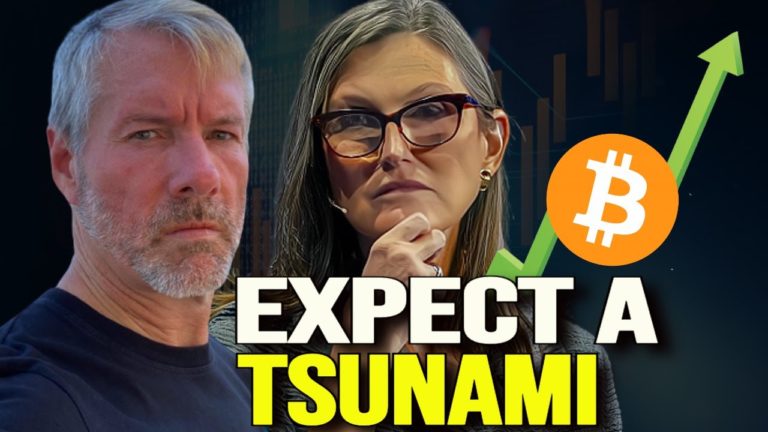Much to the chagrin of crypto enthusiasts, Elon Musk yet again is tweeting about crypto. And this time drawing attention to one of the long-time ideals of the cypherpunks, which is escaping from the chains of fiat:
“The true battle is between fiat & crypto. On balance, I support the latter.”—Elon Musk
But rather than get further enmeshed in Musk’s latest crypto market hyperbole, let’s examine why people’s faith in fiat is on the decline.
With every dollar that we spend, we partake indirectly in the decisioning of the government backing the currency that we are spending. By using such currency we provide a means of support for the fiat currency being spent or saved. Consequentially, whether we agree or not with the decisions our leaders make, we have an indirect economic participation in those decisions through the use of fiat currency.
The earliest pre-historic forms of transacting, as told by anthropologists, were a simple bartering of goods between people (what’s referred to in crypto as peer-to-peer exchange). Then to keep track of these transactions there came the tally stick, a bone tool that was notched to keep track of these exchanges (an early ledger system). As we developed out of bartering tribes and into trading societies, forces in power disrupted these simple means of exchange by becoming toll collectors along the way. People didn’t ask for these toll collectors—they just happened. Think of feudal kings forcing excessive taxation on serfs for the crown purse, or lenders setting high usury rates to their benefit, or the Boston tea party from which our country escaped the tax burden of the British.
Such powers have evolved into modern day nation states (the United States included when in 1909 the 16th amendment passed allowing the Federal Government to charge us taxes). And as a nation state there is a whole other set of rules over currency beyond taxation: stringent KYC (Know Your Customer) regulations, the Bank Secrecy Act (allowing for surveillance for transactions over $10,000 dollars; and mandated special record keeping for transactions over $3000), and the Patriot act (giving the government highly invasive authority over any transaction with a low bar of suspicion). Such laws have created an ominous cloud over our sense of privacy and freedom. The idea that our monetary activity must be monitored for the sake of “protecting” us from terrorists, cartels, or anything else illegal that people do, has become blindly accepted by many of us. We no longer consider if the government’s ability to track our spending, our banking transactions and our communications is constitutional—and as far as illicit activity goes—unfortunately, these activities will be perpetrated regardless of regulations: with cash, or other units of trade by nefarious actors.
The Federal Reserve and U.S. Treasury control our dollars on a macro scale, again for the sake of our financial protection. They both print money by way of interest rate manipulation, quantitative easing (where bonds are bought on the open market by the government, thus further increasing money supply), or by congressional stimulus actions from which our national debt is increased. We the People are given free money out of the thinner and thinner air—not noticing that we’re left to choke on higher and higher prices. Central banks around the world follow this Keynesian economic model. And because of the dominance of central bank fiat, we have no other alternative but to partake in these capital controls.
But our better instincts know these activities will lead to a devastating outcome:
- When we run up credit cards beyond what is affordable, it leads to our bankruptcy.
- When we irresponsibly use equity in our homes like a credit card, it led to foreclosures in 2008.
- And now that the government is using the US treasury like a credit card ringing up unprecedented debt, what will this lead to?
Again, without much choice over which currency we get to use—we are stumbling toward a fiat based economic crisis like blindfolded cattle to the slaughterhouse.
The bank/government monitoring and manipulation of our fiat is an unnecessary invasion of our human right to privacy. And the fact that we have no other currency alternative is a governmental monopoly on our ability to choose how we transact. It is unfortunate that we succumb to such narratives of exchanging our human rights for protection. That we must rely upon an inflationary system backed by a ballooning debt. We trade sovereignty for fiat because we have no other choice.
Hence, we are at the mercy of fiat currency, because it is our only means of exchange. We have given our rights over to monetary structures, which are surveilling our spending activity. We have forgotten that the exchange between people or entities devolved into this structure because third parties came along (like the feudal lord) to act as a toll collector–our fiat systems emerged out of this oppressive dynamic.
Free state governments can and will function by our democratic vote alone; they do not need to control the monetary system to function peacefully; we can still flourish in our humanity without such monitoring.
This is not to say people should not pay taxes. Of course, we need to fund the supportive infrastructure of nations. But fiat should not be the only option. We should have choice.
This is where crypto comes in. The invention of the blockchain, a distributed ledger that allows for peer to peer (person to person) exchange without a third party (a toll collector), is the means for us to break the bondage of fiat (and our forced participation into government backed currency).
This is not unpatriotic. We can still support our democracy and separate ourselves from governmental surveillance of our accounts and wallets. There can be a separation of money and state power—we should monitor the government, not be monitored by the government. In fact, there are technology solutions, such as zero knowledge proofs in crypto where privacy can be maintained while allowing governments to verify if taxes owed were paid—this is an example where borderless crypto may actually help ensure that taxpayers pay their fair share.
By way of crypto, we can have a system of peer-to-peer exchange bringing us back to our roots of person to person trade. The kind of exchange that did not have some wicked troll under the bridge collecting a fee with every dollar spent, even when there isn’t a bridge to cross. But now, there is indeed a bridge to cross… and in doing so we will be free from the bondage of fiat currency. By participating in, learning about, and using cryptocurrency… we can liberate from moribund fiat into crypto.






